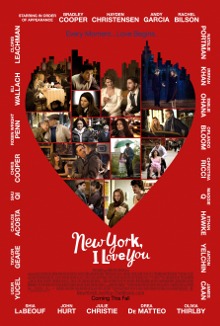What particular challenges did you face while making your film?
HAIFAA Al-MANSOUR: (Writer/Director, Wadjda) Without the basic infrastructure of a film industry [in Saudi Arabia], every aspect of the film’s development presented challenges. A big problem was casting, as we can’t have open casting calls in Saudi because of the sensitivities with women acting. Filming in Riyadh was a challenge as well; people aren’t used to having cameras around so we were especially cautious, even though we had permission to shoot publicly. For a lot of the outdoor scenes we knew we were going to face a lot of difficulties, from conservative bystanders to sandstorms to nervous partners, so we had to be ready to work with what we had on any given day. We used a hand-held camera sometimes to save time and give the actors freedom with their movements. I occasionally directed from a protected spot, like a van, so people wouldn’t see me (a woman) interacting publicly with the crew (men).
ANNEMARIE JACIR: (Writer/Director, When I Saw You) All the usual ones! Financing being at the top.
HANAN ABDALLA: (Director, In the Shadow of a Man) The main challenge I faced was approaching the subject of ‘women’s needs’ in the aftermath of the revolution. At first I was deeply uncomfortable; I felt that I would be following a fetish that much of the Western media had become obsessed with. There were more important stories to tell, I thought. Luckily, thanks to friends and family convincing me otherwise, I persevered despite my concerns. I came to realise that the problem wasn’t with the subject matter, but with the question itself. I started by wanting to ask [documentary subjects] Wafaa, Badreya, Shahinda and Suzanne theoretical questions about what freedom meant for women, if society had limited their choices and what their solutions were; things like that. I moved—or, in actual fact, they moved me—to a much more intimate place where they started to tell me their stories: the very personal subtleties of the frustrations; the longings; the triumphs; and the inconsistencies of being a woman in Egypt.
And what particular challenges do creative women face in your home country?
HAIFAA: Most Saudi women wouldn’t dare do anything that would put them in any sort of a public platform to express themselves; things like directing, acting or performing for women are seen as completely taboo in the Kingdom, so you have to have a thick skin to put yourself out there.
Because of censorship, and just social pressure in general, creative people of both genders in the Kingdom face all kinds of pressure. A lot of artists practice self-censorship and try to play it safe, not knowing that making any type of art is putting out an opinion. Even the most basic art forms somehow talk about the world and a person’s search for a place within it. Not only in Saudi Arabia but the entire Gulf region, people are reluctant to form an individual opinion. These are tribal societies where individuality is vilified, where group-think is seen as a positive part of the culture. So stepping out of that can be a painful, scary process, but ultimately extremely rewarding and beneficial to the society’s development.
ANNEMARIE: I would say our challenges are the same as women everywhere in film. For me, being in production, and being on set, I don’t feel specific difficulties as a woman per se. The challenge is felt, however, when trying to finance projects, and when looking for partners and funding. I think women filmmakers all over the world have this problem.
HANANT: he challenges that women face in the film industry in Egypt are similar to the challenges faced by women in many other countries in this male-dominated industry. The major difference is that Egypt is more socially conservative, which leads to other issues regarding the ability of women to enter into the field in the first place. The working hours of the film industry tend to be a big  challenge, due to the fact that filming schedules are liable to finish very late which can cause conflicts within the family—what people will say about her, if it will impact her eligibility for getting married, along with other social taboos masqueraded by the claim that this is Egyptian ‘tradition’ and ‘culture’.
challenge, due to the fact that filming schedules are liable to finish very late which can cause conflicts within the family—what people will say about her, if it will impact her eligibility for getting married, along with other social taboos masqueraded by the claim that this is Egyptian ‘tradition’ and ‘culture’.








